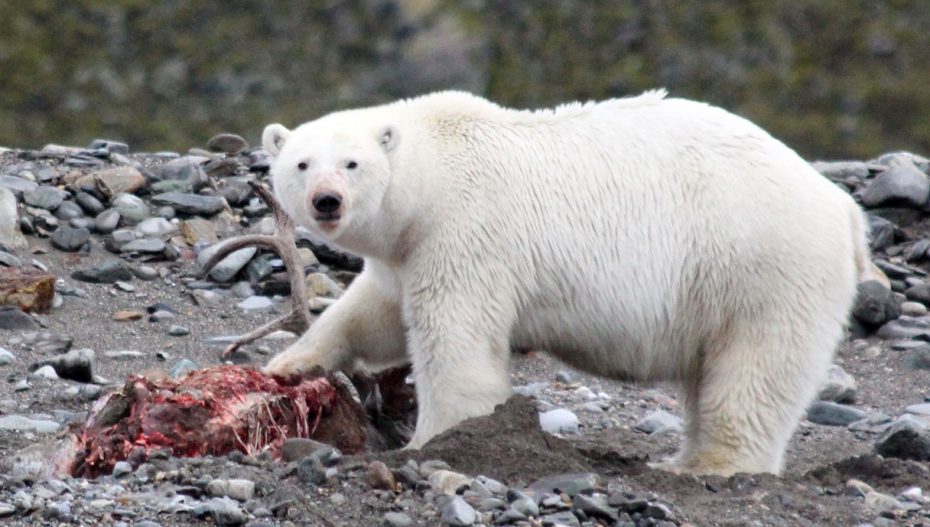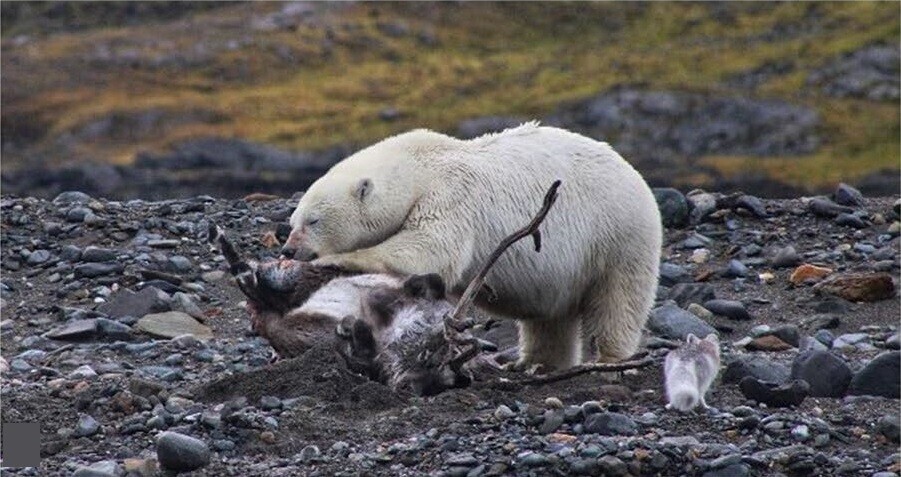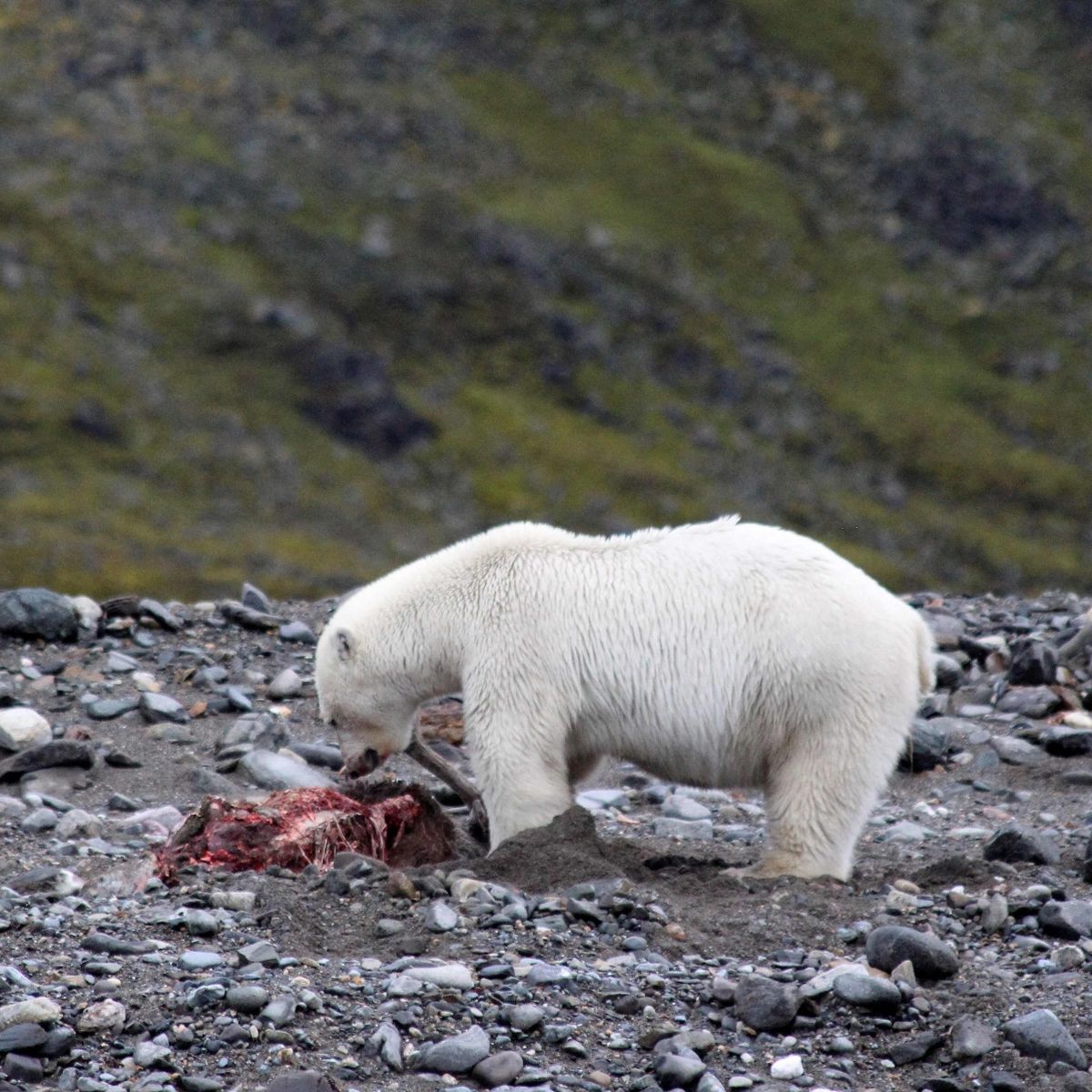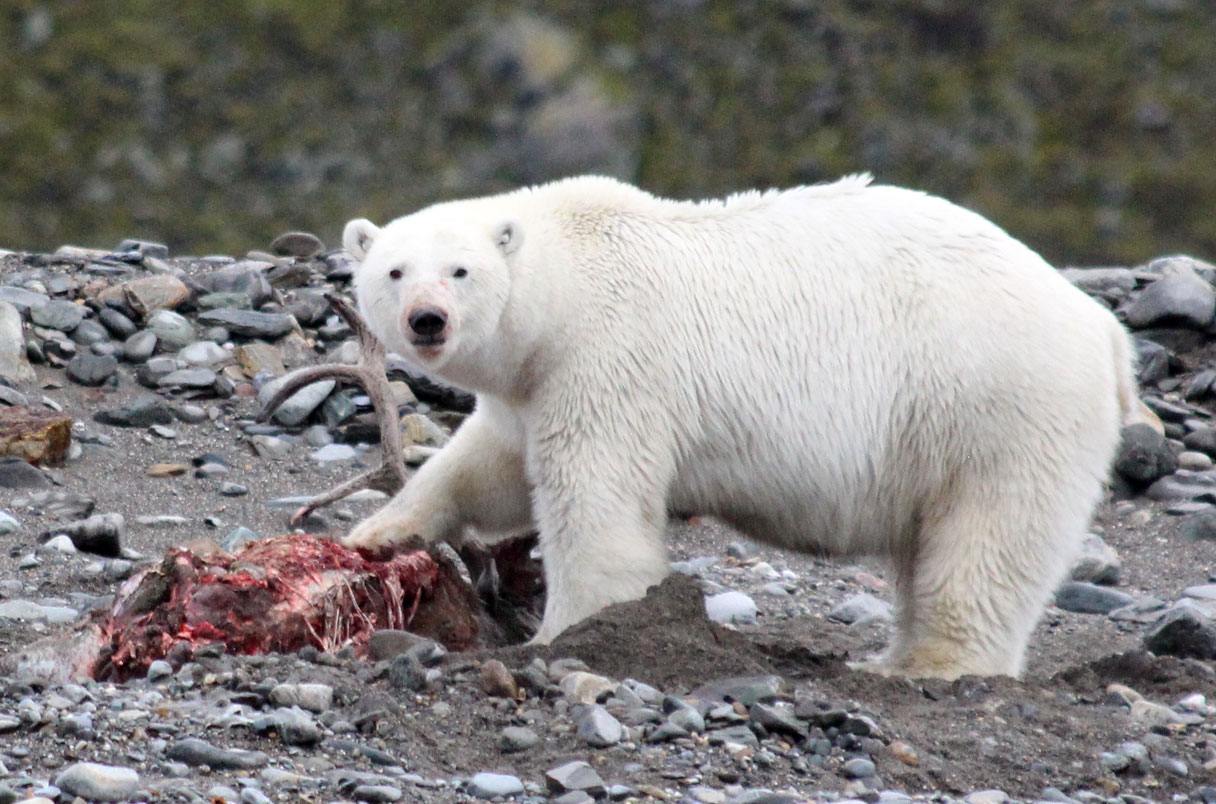A recent video of a polar bear hunting reindeer has raised interesting questions about the changing nature of life in the polar north.
Recently, scientists in Hornsund, Svalbard – a Norwegian archipelago in the Arctic Ocean – witnessed a polar bear pursuing a reindeer into the sea before killing it, dragging it ashore and eating it. Two days later, they saw the same bear beside a second fresh reindeer kill.
Their observations are the first detailed account of a complete and successful polar bear hunt of a Svalbard reindeer. But they follow 13 previous reports of polar bears hunting and scavenging on reindeer on the same archipelago between 1983 and 1999.
Apart from reindeers, polar bears have been spotted feeding on seabird eggs, geese, rodents, etc., to keep themselves fed.
Polar bears are, traditionally, best at hunting marine creatures, and they enjoy a meal comprising offshore seals during the months when the sea is frozen.
With rising global temperatures, Arctic Sea ice is melting earlier in summer and refreezing later in winter. And as the ice-free periods become longer, polar bears are spending more time on land without access to their primary food.
Researchers found polar bears to be inefficient predators of seabird eggs, such that the energy an individual bear gains from eggs may be less than previously thought. That’s because they may use more energy to find the eggs than they get from eating them. Equally, other studies have found that the consumption of terrestrial food by polar bears has been insufficient to compensate for reduced hunting opportunities out on the ice.
In the near future, polar bears will likely struggle to meet their energy needs as they spend less time on the sea ice and consume less fat, leading to greater fatality rates.
















